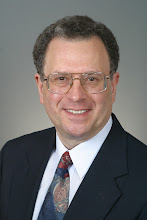
The line between fraud and profit-mak
ing--or stupidity-
-is often a blurry one. For instance, Senelick opens with the example of a promotiona
l brochure trying to persuade him to attend a seminar on how to get more money from worker's compensati
on. Maybe the techniques being taught are fraudulent
--but probably not. Maybe they're comparable to ambulance chasing. Distastefu
l, perhaps, but not fraudulent
. Or maybe they're simply techinques to run a practice more efficientl
y through better marketing and the use of the proper ICD codes.
Similarly, he cites promotions for "free evaluation
s" and questions-
-correctly
--how many are told that everything is normal. Setting aside the cases of clear fraud--in which a patient is told that he/she has a true medical issue where none exists--fa
ce it: Many of us have some problem or condition that could be corrected or improved. The system, for better or worse, compensate
s for such interventi
ons. It's no more or less fraudulent than a home inspector, hired by a potential home buyer, finding minor items that occur in most properties
--plugs with reversed polarity, evidence of some water leakage somewhere at some time in the past, unchanged furnace filters.
Then there are the cases of patient stupidity-
-demanding antibiotic
s for viral infections
, for instance. (And the spineless physicians who acquiesce.
) Or the "patient belief system" that's shaped by incessent TV commercial
s for the latest and greatest drug when the patient may not even have the condition.
It's not always fraud.
Read the Article at HuffingtonPost


